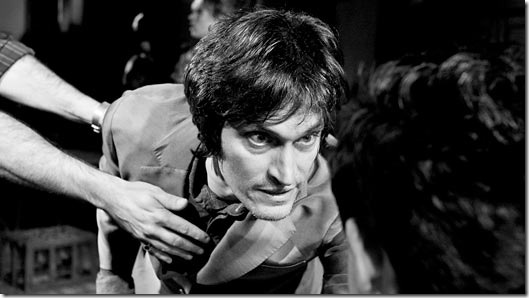If Tetro is the 70-year-old Francis Ford Coppola’s final film, it would be an elegant swan song to an accomplished career: an invigorating inhalation of arthouse air to remedy the commercial drudge work to which the director confined himself in the ‘90s.
Indeed, the Francis Coppola of the late half of the late ‘00s harkens more to his rebellious, rulebook-eschewing, film school upbringing than any period since his ‘70s zenith. But if Coppola has indeed found his muse again in the wake of such puzzling directorial decisions as Jack and The Rainmaker, he overplayed his hand with the self-marginalizing Youth Without Youth (2007), a pull-your-hair-out mystery that made sense only to him.
His first fully realized project in a decade’s time, it all but cemented the filmmaker’s reputation as a pretentious, out-of-touch megalomaniac who’s lost his place in modern moviedom. I would not be surprised to learn that more people under 30 know Coppola for his wine than for his films.
Yes, Coppola knows about displacement and disillusionment, two of the strongest themes in Tetro. Set in Argentina, it’s about brooding writer Tetro (Vincent Gallo), who abandoned his family, life and birth name in New York years earlier to go on an endless writing sabbatical in South America. When we meet him in Buenos Aires – grumpy and crippled, after being hit by a bus – it’s clear his creativity has been blocked for some time.
But he’d already written a kind of memoir-slash-manifesto attacking his father, a world-famous conductor, and reflecting on his late mother, an opera singer who died in a car accident with Tetro at the wheel. It’s a mammoth text, spilling out of suitcases stuffed in hard-to-reach cubbyholes, with no conclusion planned and no publication desired. He gets by on the occasional lighting job for a local Felliniesque theater company and on the income of his live-in girlfriend Miranda (Maribel Verdu of Pan’s Labyrinth), a mental health nurse who fell in love with Tetro when he was assigned to her clinic.
This is the world in which Tetro’s estranged brother Bennie (an unknown actor named Alden Ehrenreich), an 18-year-old cruise-ship busboy, enters when his ocean liner breaks down. He stays with his older brother for a week, reigniting old flames of familial discord left simmering on a long unattended burner of Tetro’s mind. Bennie wants to learn more about the complicated history in which he was raised – about the mother he never knew and father he barely knows — and his surreptitious reading of his brother’s work leads both men to reevaluate relationships past and present, resulting in some surprising revelations.
Shot in black-and-white Cinemascope, Tetro captures Buenos Aires as a slice of towery German expressionism, all chiaroscuro lighting, canted angles and oblique shadows, photographed from the most compelling nooks and crannies in the city’s topography. Bursts of color (which Coppola experimented with in another otherwise monochrome film, Rumble Fish) and brilliant bursts of light illuminate Tetro’s visions, fantasies and flashbacks, the muddled muck of a mind that prohibits him from engaging in any kind of normal relationship. In its occasionally surreal visuals, the film recalls the hyper-stylized plasticity of previous Coppola works such as One From the Heart and Dracula, as well as such Italian dazzlers such as Nights of Cabiria and La Notte.
While there may be nothing quite like Tetro, it broadcasts such reference points – Coppola has also cited On the Waterfront as an inspiration for Tetro’s atmosphere, and Powell and Pressburger’s Tales of Hoffman and The Red Shoes are shown in stock footage and homaged, respectively.
It all doesn’t quite add up, but unlike the convoluted clutter of Youth Without Youth, this time each enigma is worth deciphering, urging you to view the film a second time to crack its codes. Like a great work of art, it doesn’t play its entire hand on first look.
Coppola called Tetro a very “personal” project in an interview with Empire magazine, and it’s telling that this is his first original screenplay credit in 34 years. Boundless in its sweeping Shakespearean drama and boldly experimental in its form, Tetro is the sign of a filmmaker reconnecting with the young movie brat of The Conversation and The Godfather.
It is the real youth without youth.
TETRO. Director: Francis Ford Coppola; Cast: Vincent Gallo, Alden Ehrenreich, Maribel Verdu, Klaus Maria Brandauer, Carmen Maura; Opens: Friday; Venue: Lake Worth Playhouse
